
Emmerich Kálmán: Heia, in den Bergen
The eponymous "csárdás princess" of Kálmán's ever-popular 1915 operetta Die Csárdásfürstin (in English usually, though imprecisely, called The Gypsy Princess) is Sylva Varescu, a Hungarian cabaret singer who becomes engaged to a prince. Sylva's dazzling opening number, sung on the stage of her chic Budapest nightclub, mixes Magyar exoticism with Viennese charm.
Richard Heuberger: Im chambre séparée
In the operetta Der Opernball, Heuberger's 1898 masterpiece, the housemaid Hortense disguises herself as a masked lady to attend a glamorous Parisian opera ball. In this seductive duet, she invites the attractive young naval cadet Henri to join her in a private room for a "tête à tête".
Franz Lehár: Meine Lippen, Sie küssen so heiss
In Lehár's bittersweet 1934 operetta Giuditta, the beautiful heroine abandons her husband to be with Octavio, an army captain. When he leaves her to pursue his military career, she becomes a night-club performer in North Africa - and a rather successful one, it would seem from this, the operetta's hit number.
.jpg)
Gustave Charpentier: Depuis le jour
The heroine of Charpentier's Louise is a Parisian dressmaker who has fallen in love with the bohemian poet Julien, but their relationship scandalizes her narrow-minded parents. In this, the opera's most famous aria, Louise tells her lover that her life has become one of indescribable happiness since she met him. At the end of the opera she abandons her parents to live with him - a surprisingly modern ending for an opera written in the 1890s.
Jacques Offenbach: Belle nuit, ô nuit d'amour (Barcarolle)
In Offenbach's 1881 opera Les contes d'Hoffmann, we witness the poet E.T.A. Hoffmann's doomed love-affairs in three cities. This famous duet, sung by the courtesan Giulietta and Hoffmann's friend Nicklausse (a mezzo role), is set on a Venetian lagoon. Offenbach originally composed it for his ill-fated romantic opera Die Rheinnixen, but it found a happier home in this, his last and greatest work.
Richard Strauss: Cäcilie
Strauss presented this ravishing song to the soprano Pauline de Ahna, his bride-to-be, on the day before their wedding in 1894. The text was the poet Heinrich Hart's tribute to his own wife, Cäcilie. Although Strauss and his spouse were opposites in temperament - he was phlegmatic and de Ahna fiery - this ecstatic piece proved prophetic of their long union.
+35.jpg)
Edvard Grieg: Solveig's song
Solveig is the patient and long-suffering love of Peer Gynt's life, but he abandons her to seek adventure in the world. Solveig nevertheless sings of her love for Peer in this haunting lullaby, composed by Grieg for the first performance of Ibsen's play in 1876.
André Messager: Lorsque je n'étais qu'une enfant
In Messanger's 1907 opera Fortunio - a great success at Pari's Opéra-Comique - Jacqueline is using the naive young Fortunio as a decoy to draw attention from her real love affair with a soldier. When Fortunio reveals how deeply he loves her, she rejects him.
Antonín Dvorák: Kdyz mne stará matka
Dvorák composed a cycle of Gypsy Melodies to texts by the poet Adolf Heyduk in 1880, and this sweetly sentimental ballad from the set has become his best-known song, famous in English under the title Songs My Mother Taught Me. He made this Czech version of the song soon after setting the original German text.
+36.jpg)
Richard Strauss: Wiegenlied - Lullaby
Strauss composed this rapt, haunting lullaby in 1899 to a poem by Richard Dehmel, and dedicated it to his friend Mme. Marie Rösche (née Ritter). The accompaniment was originally for piano, but Strauss himself later adapted it for orchestra.
Nikolai Rimsky-Korsakov: Ne veter, veya s visoti
Not the wind, blowing from the heights
This charming song, comparing the effect of the wind on the poet's body to the effect that his beloved has on his soul, was composed in 1897 to a text by Count Aleksei Tolstoy (a relation of the novelist Leo Tolstoy). This, and the following song, are both orchestrated here for the first time.
Nikolai Rimsky-Karsakov: Plenivshis' rozoy, solovey
Eslaved by the rose, the nightingale
Rimsky-Korsakov wrote his Oriental romance in 1866, and dedicated it to Malvina, the wife of his friend and fellow-composer César Cui. The words are from an 1831 poem by Aleksei Kol'tsov, written in imitation of the style of the literary giant Aleksandr Pushkin. With its sinuous faux-oriental melody, it reflects the fascination with the eastern reaches of the empire which pervaded Russian culture at the time.
+37.jpg)
Schlof sche, mein Vögele - Sleep well, my little bird
Very little is known about the origins of this traditional Yiddish lullaby, but its sad and tender beauty has ensured that it touches hearts whenever it is performed.
Andrew Lloyd Webber: Pie Jesu
Lloyd Webber's 1985 Requiem was written as a response to the harrowing plight of Cambodian orphans in the early 1980s, as well as to the death of his father in 1982. It was an immediate success, and later won a Grammy. The Pie Jesu, a duet for soprano and boy treble, also rose surprisingly high in the UK pop charts.
Reynaldo Hahn: L'énamourée - The loved one
The Venezuelan-born Hahn composed his first song aged eight and entered the Paris Conservatoire at ten. This exquisite and pensive melody dates from 1892, when he was still only 17.
+38.jpg)
Carlos Guastavino: La rosa y el sauce
Guastavino's reputation is based almost entirely on his songs. Luscious, tonal and influenced by folk music, they have been enormously popular in the composers's native Argentina since the 1940s - La rosa y el sauce (The Rose and the Willow) from 1942 is one of the best known. In recent decades their appeal has been spreading around the rest of the world.
Gerónimo Giménez: La tarántula é un bicho mú malo
Giménez's zarzuela (a form of Spanish operetta with a high proportion of dialogue) La tempranica (The Headstrong Girl) was a huge hit at its premiere in Madrid in 1900. It tells the story of María, a young gypsy who falls in love with a nobleman but who comes to realize that their love is impossible. La tarántula, a lively zapateado (a Spanish dance in triple time), is performed as a diversion by María's brother Grabié, a trouser role.
Luigi Arditi: Il bacio
The italian composer, violinist and the conductor Luigi Arditi toured the world before deciding to settle down in London in his 30s. It was there that he wrote this, his most popular song, in 1860. Il bacio (The Kiss) has been a favourite ever since among singers possessing a good coloratura technique.
The italian composer, violinist and the conductor Luigi Arditi toured the world before deciding to settle down in London in his 30s. It was there that he wrote this, his most popular song, in 1860. Il bacio (The Kiss) has been a favourite ever since among singers possessing a good coloratura technique.
The following two videos are about the recording of "Souvenirs". The first video shows the recording of "Belle nuit, ô nuit d'amour" (Barcarolle) together with latvian mezzo-soprano Elina Garanca and the second video shows the recording of "Heia, in den Bergen".
If you click here you can watch another video about the recording. There are short interviews with Anna, Emmanuel Villaume, Elina Garanca, Andrew Swait and Anna's vocal couch Elena Matusovskaya. Furthermore you can watch parts of the recording of "Pie Jesu", "Barcarolle" and "Heia, in den Bergen".
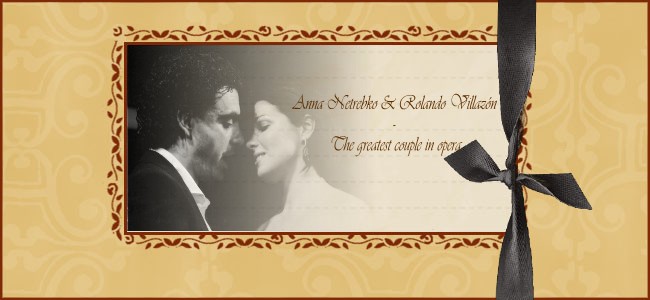

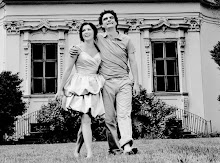
.jpg)

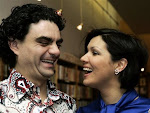

.jpg)

.jpg)


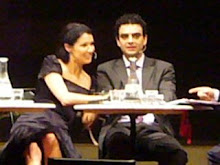.jpg)


.png)
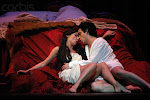


.jpg)
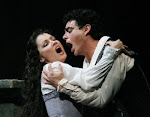.jpg)
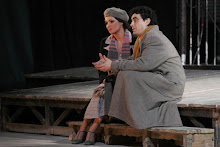.jpg)
.jpg)
.jpg)
.jpg)
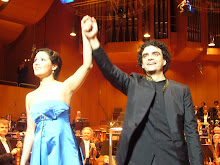.jpg)


.jpg)


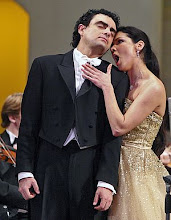.jpg)
.jpg)


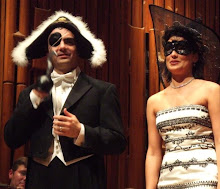


.jpg)
.jpg)

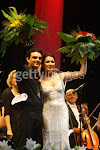
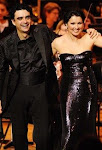.bmp)
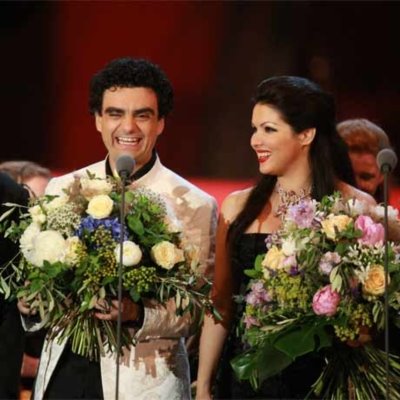
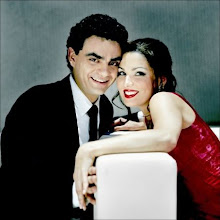
.jpg)

.jpg)




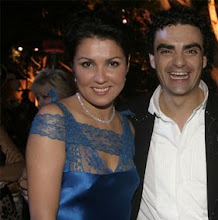+2.jpg)
.jpg)






















3 Kommentare:
OMG ! Souvenirs is such a wonderful, wonderful album ! The songs are really choose very well and it's totally correct what Anna said about Souvenirs "This recording is like a bridal bouquet, bursting with variety and colours", "I want it to create a wonderful array of emotions - passion, fun, love, tenderness".
Great post, with all the comments, songs pics...
Thank you ! =)
Kommentar veröffentlichen